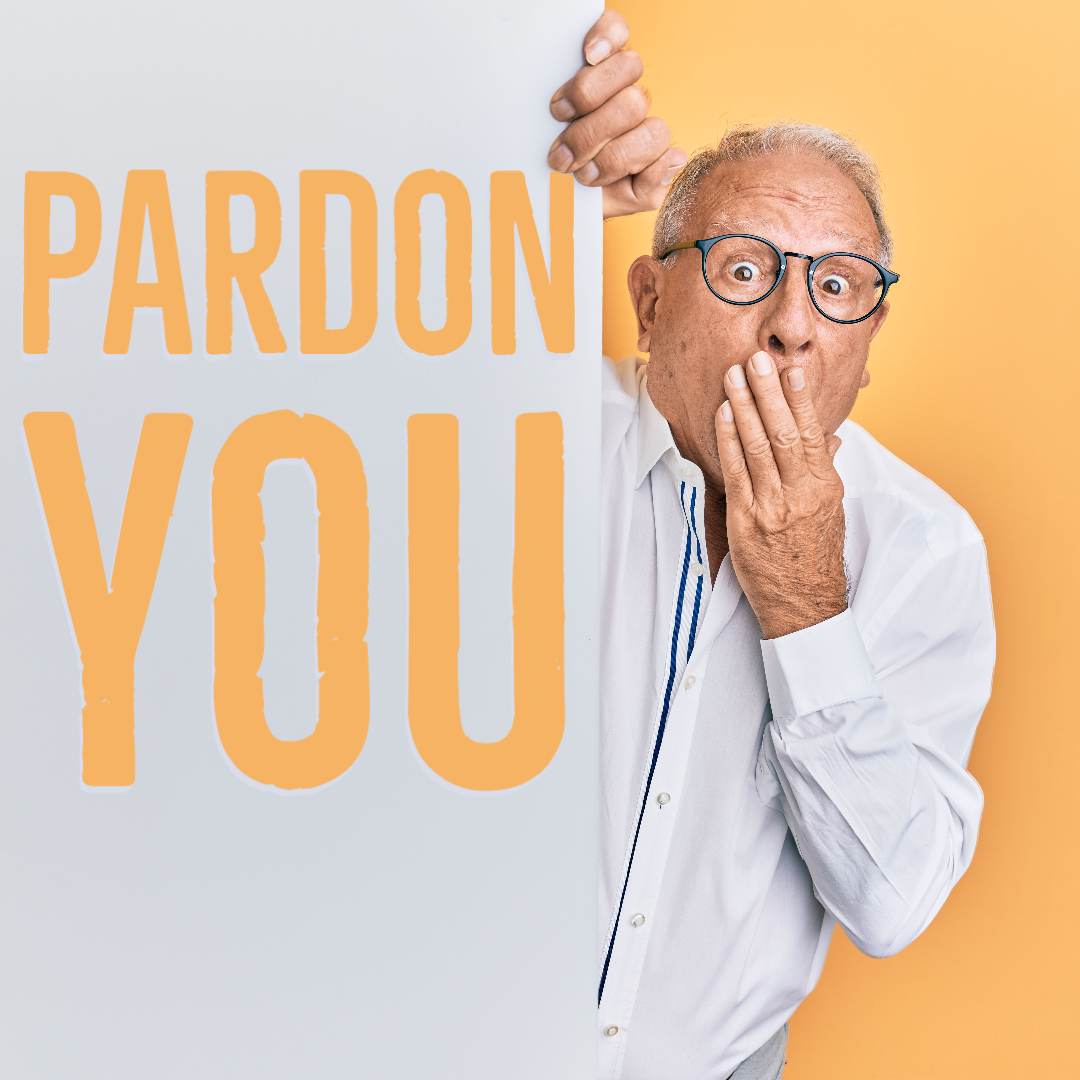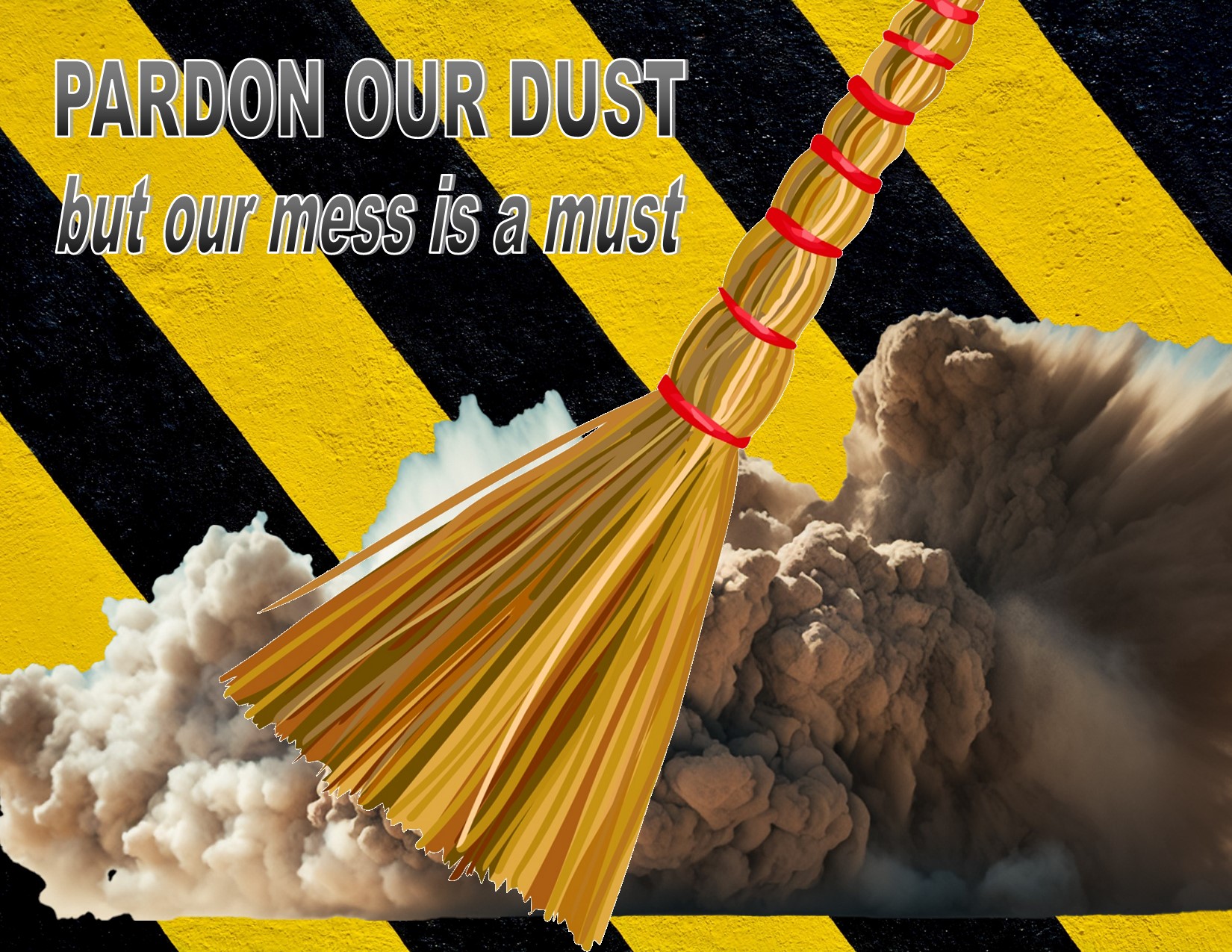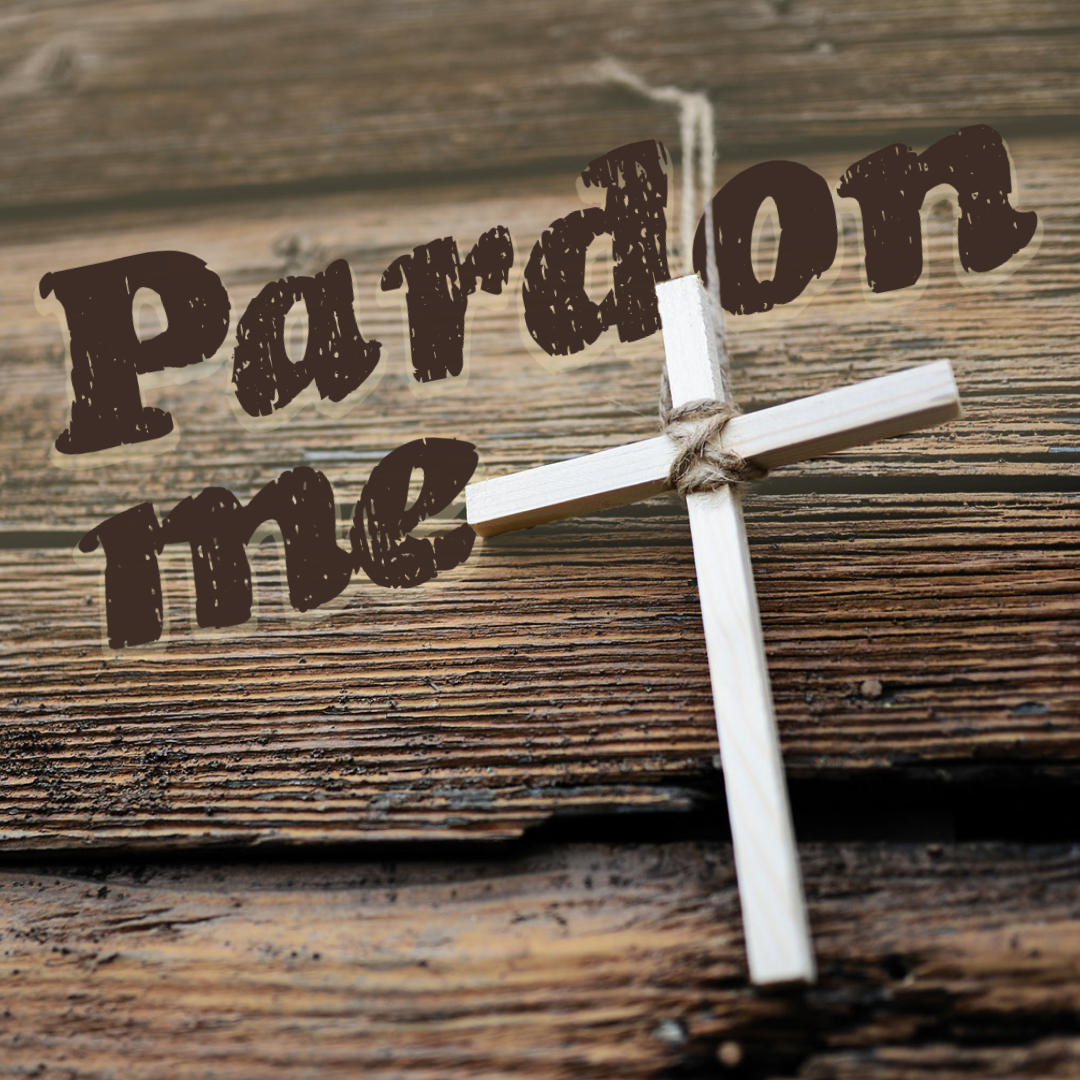Have you ever wondered about the true meaning of a pardon? It's a word we hear, you know, quite a bit, especially when news talks about government actions. But what does it really involve, and why does it matter so much to people? Well, essentially, a pardon is like a big act of kindness, a moment of official indulgence, that can really change someone's life in a very big way.
This idea of a pardon, it's not just about letting someone off the hook, as a matter of fact. It's a formal decision, usually from a government leader, that lets a person be free from some, or even all, of the legal troubles that come from being found guilty of a crime. It's a powerful tool, really, that can be used before or after someone has faced their punishment. It's pretty interesting, if you think about it, how it works.
We're going to talk about what a pardon means, how it's used, and what it doesn't do, like, for instance, clearing a criminal record. We'll also look at some real-life examples, like those recent federal pardons for marijuana possession, and discuss who actually has the authority to grant such a significant act of forgiveness. So, you know, stick around to get a better sense of this important topic.
Table of Contents
- What is a Pardon, Really?
- How Does a Pardon Actually Work?
- Who Can Grant a Pardon?
- Pardon vs. Expungement: A Clear Difference
- Recent Presidential Pardons: A Look at Current Events
- The Human Impact of a Pardon
- Frequently Asked Questions About Pardons
What is a Pardon, Really?
When we talk about a pardon, we're essentially talking about an indulgence, a way of showing forgiveness. It's an official act that means someone is excused for something they've said or done, something that might have been a mistake or a wrongdoing. This word, "pardon," it's often used in polite conversation, like when you bump into someone and say, "Pardon me!" But in the legal world, it carries a much heavier weight, you know, a very serious kind of meaning.
Basically, a pardon is a decision made by a government to let a person be free from some, or even all, of the legal outcomes that come from being found guilty of a crime. It's not about saying someone was innocent all along, which is a common mix-up, actually. Instead, it's more of a grant of mercy, a way to lessen or soften the impact of a past conviction. It's a formal act of forgiveness for a crime that was committed, a really significant step.
So, you might be wondering, what does this "forgiveness" actually do? Well, a pardon is a way to restore a person's civil rights, those basic citizen privileges that might have been taken away because of a conviction. Things like the right to vote, to hold certain jobs, or to serve on a jury, those sorts of things. It's a big step towards helping someone get their life back on track, you know, to move forward after a difficult period. It's a powerful way to show official leniency.
How Does a Pardon Actually Work?
A pardon is, at its heart, a governmental decision, a choice made by someone in a position of authority. It's designed to free an individual from a criminal conviction, often, you know, allowing them to avoid all or part of the punishment that was given at their sentencing. This power can be used in different ways, and it's quite flexible in its application, which is interesting.
One of the key things about a pardon is that it can be granted either before someone has faced their punishment, or after they've already served their time. This flexibility means that the person granting the pardon has a lot of discretion, a bit of a free hand, in deciding when and how to apply this kind of mercy. It's not a rigid rule, you know, but more of a tool that can be used strategically.
When someone receives a pardon, it officially says that they will be allowed to go free and will not be punished for a crime they were found guilty of. It's also a way to say that someone shouldn't be blamed for thinking or doing something, even if it was technically against the rules. It's a formal declaration, you know, that effectively wipes away the remaining legal consequences, though not the record itself, which is a pretty important distinction.
This act of forgiveness, it really focuses on restoring someone's basic citizen privileges. Imagine someone who lost their right to vote because of a past mistake; a pardon could give that right back. It's about helping people reintegrate into society, to be able to participate fully again, which is a really positive outcome for many, you know, a chance to start fresh in some respects.
Who Can Grant a Pardon?
A pardon is usually given to an individual by the actions of a government official. This could be someone like a governor at the state level, a president at the federal level, or even a monarch in countries that have them. It's a power that rests with the executive branch of government, you know, those who lead the country or a state. This authority lets them release someone from any punishment that's due for breaking a rule.
For the United States President, this power to pardon comes directly from Article II of the Constitution. It's a specific power given to the highest office in the land, allowing the president to use executive power to exempt an individual from punishment. This means the president can, basically, say "no more" to certain legal penalties, which is a very significant authority to hold, you know, a really big responsibility.
The office of the Pardon Attorney is a part of the Department of Justice, and it actually helps the president with this executive clemency power. They look into cases, gather information, and make recommendations. Executive clemency, you know, can take several forms, and a pardon is just one of them. Others might include a commutation of sentence, which lessens a punishment, but a pardon is about official forgiveness and restoring rights.
We've seen presidents use this power throughout history. It's a part of the system, really, a way for the executive branch to offer a kind of mercy that the courts might not be able to provide. It's a check and balance, in a way, allowing for a different kind of justice to be served, you know, when circumstances call for it. It's a very unique aspect of the legal framework.
Pardon vs. Expungement: A Clear Difference
This is a point where many people get a little mixed up, you know, between a pardon and something called an expungement. While both can offer relief, they do very different things for a person's record. A pardon, as we've talked about, is an act of forgiveness. It restores your civil rights, like the ability to vote or hold certain licenses, which is really important for many people.
However, and this is a big "however," a pardon doesn't actually expunge or clear your criminal record. What does that mean, you ask? Well, it means the conviction still shows up on your record. It's still there for people to see if they do a background check. It's not erased, you know, it's just officially forgiven in terms of its ongoing legal consequences and the restoration of rights. This is a pretty vital distinction to understand.
Expungement, on the other hand, is a legal process that actually seals or erases a criminal record. When a record is expunged, it's like it never happened in the first place for most purposes. It's removed from public view, and you can often legally say you were never convicted of that crime. So, you see, they are very different tools, even though both can offer a fresh start in some respects.
The key takeaway here is that while a pardon is a wonderful thing for restoring rights and offering official forgiveness, it won't make a past conviction disappear from your history. If someone is looking to truly clear their record, they would need to explore expungement, which is a separate legal process, you know, with its own set of rules and requirements. It's important to know the right path for what you're trying to achieve.
Recent Presidential Pardons: A Look at Current Events
To give you a real-world example of how pardons are used, we can look at some very recent actions by President Biden. On October 6, 2022, and again on December 22, 2023, the President issued pardon proclamations for certain federal offenses. These were specifically related to simple marijuana possession, which is a pretty big deal for many people, you know, considering the number of individuals affected by such convictions.
These pardons weren't for major drug trafficking or other serious crimes, but rather for a very specific type of offense. This shows how a pardon can be used to address broader societal issues or to correct what might be seen as past injustices. It's a way for the government to, basically, acknowledge a shift in public opinion or policy regarding certain actions. It's a very visible use of executive power, actually.
The impact of these particular pardons is quite significant. For those individuals who had federal convictions for simple marijuana possession, these pardons mean they are relieved of the legal consequences. They can get their civil rights back, like the ability to get housing or jobs without that specific conviction being a barrier. It's a move that, you know, aims to help a lot of people move forward with their lives.
This kind of action highlights how the president's pardon power isn't just about individual cases but can also be used to address systemic issues. It's a demonstration of executive clemency that aims to provide mercy on a larger scale, affecting potentially thousands of people. It's a powerful way to make a statement and offer a fresh start to a whole group, you know, which is a very interesting aspect of this authority.
The Human Impact of a Pardon
Beyond the legal definitions and the official processes, a pardon has a really profound human impact. It's an act of forgiveness that can literally change someone's future. Imagine living with the weight of a past conviction, facing barriers to employment, housing, or even just participating fully in your community. A pardon can lift some of that heavy burden, you know, offering a true sense of relief.
It's not about erasing the past, as we've discussed, but it's about giving someone a chance to move forward without the ongoing legal consequences hanging over them. It's a grant of mercy, a recognition that people can change, and that sometimes, the punishment has been served, or the circumstances warrant a fresh start. It's a very human gesture, actually, from a governmental body.
For the individual, receiving a pardon can mean getting back those fundamental civil rights, like the ability to vote, which is a pretty big deal for civic participation. It can open doors to better job opportunities, allow them to pursue education, or even just feel like a full member of society again. It's a path to restoration, you know, a way to regain a sense of dignity and belonging.
The former president, for instance, once told The New York Times that he made all clemency decisions himself, which highlights the personal nature of this power, even at the highest levels. It's a decision that, you know, carries immense weight and can truly transform lives. It's about giving someone a chance to rebuild, to put a difficult chapter behind them, and to look towards a brighter future. It's a very meaningful act.
Frequently Asked Questions About Pardons
What does a pardon mean?
A pardon is an official act of forgiveness, usually from a government leader, that frees a person from some or all of the legal consequences of a criminal conviction. It's a grant of mercy, you know, that restores a person's civil rights, but it doesn't mean they were innocent of the crime.
Does a pardon clear your criminal record?
No, a pardon doesn't actually clear or expunge your criminal record. The conviction will still appear on your record, you know, but the pardon removes the ongoing legal penalties and restores your civil rights. Clearing a record typically requires a separate process called expungement.
Who has the power to grant a pardon?
A pardon is typically granted by a government official, like a governor at the state level, a president at the federal level, or a monarch. In the United States, the president's power to pardon comes from Article II of the Constitution, allowing them to use executive clemency, you know, to exempt individuals from punishment.
Learning about the meaning and impact of a pardon can really help us appreciate its role in our legal system and in individual lives. It's a complex topic, but hopefully, this has made it a bit clearer. If you're curious to learn more about executive clemency on our site, or perhaps explore the specifics of criminal justice reform efforts, please feel free to look around. There's so much to understand about these powerful legal tools, you know, and how they shape people's paths.



Detail Author:
- Name : Velma Larkin
- Username : jayda.steuber
- Email : esteban.cremin@ruecker.net
- Birthdate : 1980-02-17
- Address : 157 Aufderhar Centers Apt. 985 West Alveraton, TX 04373
- Phone : (661) 999-6952
- Company : Gusikowski-Franecki
- Job : Healthcare Support Worker
- Bio : Aspernatur qui sint consequatur vitae aperiam ut suscipit. Reiciendis dolorem fuga nemo eos ut at. Itaque odio ducimus hic aut tempore. Beatae beatae sint ullam explicabo sunt.
Socials
linkedin:
- url : https://linkedin.com/in/walsh2022
- username : walsh2022
- bio : Ex in nihil autem in non et in.
- followers : 3935
- following : 1367
facebook:
- url : https://facebook.com/abel6179
- username : abel6179
- bio : Accusamus reprehenderit corrupti non.
- followers : 3804
- following : 685
tiktok:
- url : https://tiktok.com/@abel3435
- username : abel3435
- bio : Eos nisi fugit molestiae illum. Corporis corrupti ut qui.
- followers : 3869
- following : 1387
twitter:
- url : https://twitter.com/walsha
- username : walsha
- bio : Perferendis repellendus ducimus ea maiores ipsum corrupti. Mollitia qui voluptate voluptatem numquam dolorum. Dolore ex quibusdam nam itaque voluptate.
- followers : 2391
- following : 27

